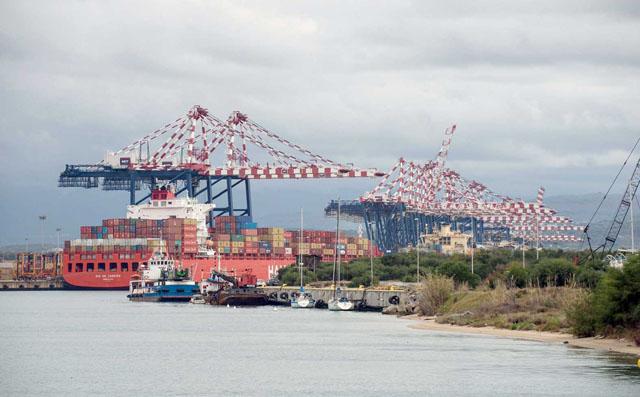You are here
Final destruction of worst Syrian chemicals slides to end June
By Reuters - Jan 16,2014 - Last updated at Jan 16,2014

ROME — The removal and destruction of the most dangerous agents in Syria’s chemical arsenal will likely be delayed until the end of June because of logistical and security problems, the head of the world’s chemical weapons watchdog said on Thursday.
Mustard gas and the components for making Sarin and VX — known as “priority” agents — were originally to have been destroyed by the end of March.
Syria has already missed a December 31 goal to transport the most toxic substances to a port and so far has loaded only a relatively small amount of chemicals onto the Danish cargo ship Ark Futura.
Ahmet Uzumcu, head of the Organisation for the Prohibition of Chemical Weapons (OPCW), said he was “confident” that all the chemicals could be destroyed by the end of June — the original deadline for the complete elimination of Syria’s chemical weapons programme and associated agents.
“As we were not able to meet the timeline for the 31st of December, from my point of view what is important is really the end of June 2014, so we will do our best to meet it,” he said.
The OPCW is overseeing the destruction of the Syrian arsenal as part of an international accord brokered by Russia and the United States after poison gas attacks on the outskirts of Damascus killed hundreds, including children, last August.
Chemical weapons were likely used in five out of seven attacks investigated by UN experts in Syria, where a near three-year civil war has killed more than 100,000 people.
The Syrian government and the opposition have accused each other of using chemical weapons, and both have denied it.
Transport challenge
Uzumcu said only about 16 tonnes of the total of 560 tonnes of the “primary” chemicals had so far been shifted to the Danish vessel.
Once the Danish ship has loaded all the primary agents, it will take them to the port of Gioia Tauro in southern Italy, where they will be transferred to a US ship and later destroyed at sea.
Transporting the chemicals through a civil war is “quite challenging”, Uzumcu said, renewing an appeal to groups that oppose Syrian President Bashar Assad’s rule to cooperate.
“The biggest area of concern is clearly the safe transportation of those weapons, chemical substances, from the sites in Syria to the port of Latakia,” he said.
Syrian authorities say opposition groups attacked two chemical storage sites more than a week ago, Uzumcu said, adding this had not been independently verified and there was “no evidence” that chemical agents had fallen into the hands of rebel groups.
Uzumcu said he met a Syrian delegation on Wednesday at The Hague to try to address security concerns.
“Some additional measures are being taken right now to reduce risks. We hope that we can move relatively quickly in the coming weeks,” he said.
Uzumcu is in Italy to address parliament about the transfer of the primary agents.
The US ship MV Cape Ray, which has been specially equipped to destroy the nerve agents, is likely to be in the Mediterranean Sea by the end of January, Uzumcu said. The chemical transfer should take no more than 48 hours, he added.
As the international coordination to rid Syria of its arsenal continues, two sources familiar with the matter told Reuters on Thursday that Britain would award a contract to destroy around 150 tonnes of chemicals to French firm Veolia Environement.
The chemicals will be processed at the firm’s incineration plant at Ellesmere Port in Cheshire, England, the sources said.
Related Articles
The last of Syria’s declared chemical agents have been shipped from the war-torn country after months of delays and are en route for destruction at sea, the world’s chemical watchdog said on Monday.
The head of the world’s chemical weapons watchdog on Thursday will announce to Italy’s parliament the port through which a shipment of arms from Syria slated for destruction will transit, the foreign ministry said.
Syria has submitted a “more specific” list of its chemical weapons to the global regulator overseeing the destruction of its stockpile after discrepancies were reported by inspectors on the ground, officials said.

















